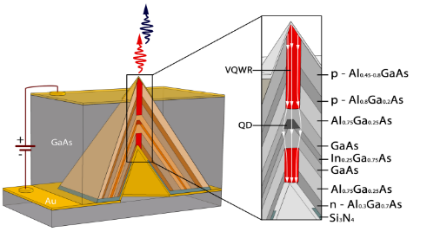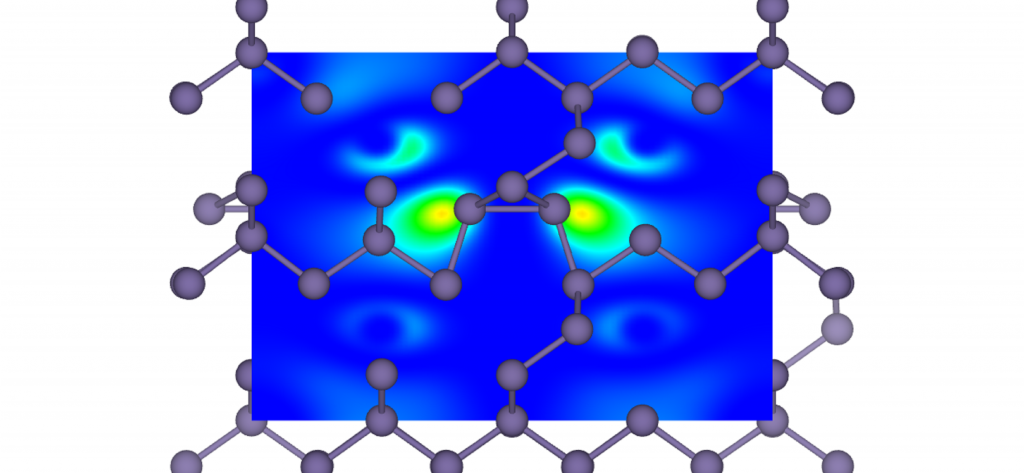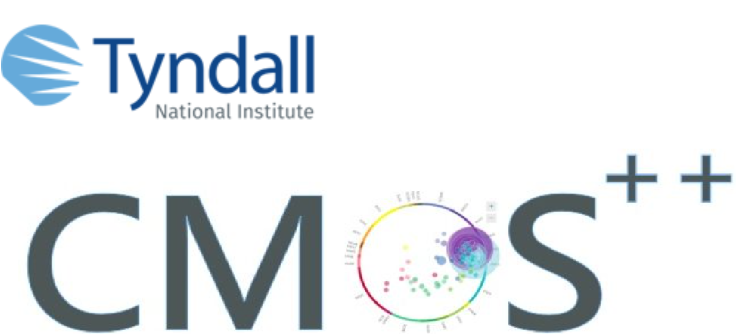Tyndall has been pioneering Irish efforts in the field, specifically on the actual realisation of Quantum Technologies. Our research teams have been investing in quantum materials and quantum-effect devices for over 15 years and this activity is finally paying off.
An optical quantum platform based on site-controlled III-V quantum dots has been uniquely developed in Epitaxy and Physics of Nanostructures Group. This platform has demonstrated the only site-controlled quantum dot system capable of high fidelity entangled light emission, making it a most promising scalable platform for solid-state quantum computation and communication. Amongst the particles investigated to date for quantum information technologies, photons are the least prone to decoherence due to weak interaction with their environment.

The Tyndall nanostructures represent a deterministic source of on-demand non-classical light, a fundamental pre-requisite for any optical quantum information protocol. Quite remarkably, sources based on quantum dots do not have any fundamental physical limitation in their potential to deliver quantum signals deterministically and on-demand. Tyndall researchers are looking to extend this activity in two fronts. On the one side, the pyramidal site-controlled quantum dots are further tuned as sources of entangled photons. In particular, the possibility to offer deterministic photonic cluster states for measurement-based quantum computation is investigated. On the other side, significant collaborative research is required to integrate the photonic qubits on an on-chip quantum platform to demonstrate the first optical quantum computer.

Tyndall researchers and the CAPPA@Tyndall group of CIT are exploiting their expertise in quantum modelling and integration of nanophotonics to deliver single photon sources for quantum communication and quantum cryptography. For example, defect-engineered germanium on silicon quantum dots have shown improved oscillator strengths and coupling for use as single photon sources at telecom wavelengths. This expertise is also applied to investigate the reduction of switching times and decoherence in quantum computation and to enhance the sensitivity of tailored materials for quantum sensing.


